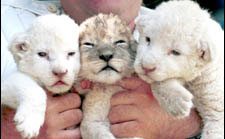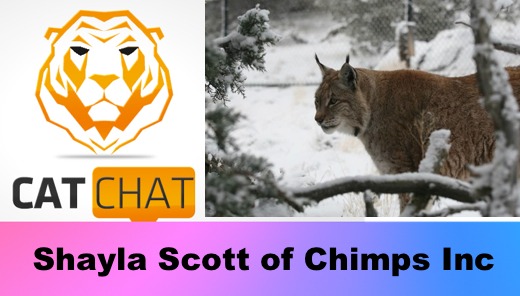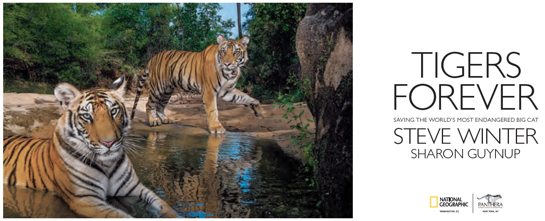Cat Chat 43
Lisa Horsborough shares her experience from volunteering at a facility in South Africa that claimed to be raising white lions and golden lion cubs for release into Kruger National Park.
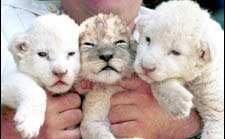
Cat Chat 43 talks about the practice of raising white lion cubs, walking with lions and cub handling in South African lodges.
To find out what happens to cubs raised by humans when they are too big to handle: CannedLion.org
Join us in the March for Lions event to raise awareness about the plight of lions: MarchForLions.com
Join Big Cat Rescue’s Carole Baskin and her cat experts from around the globe.
Playlist of Cat Chat Show videos
Find the Cat Chat Show in iTunes
Find the Cat Chat Show on Libsyn
In 44 cities around the world, from Stockholm to Sao Paolo, from Vancouver to Melbourne, Hong Kong to Cape Town.
ROAR FOR A CAUSE
If you are not marching, and even if you are, write protest letters and send emails to all the national and provincial authorities whose contact details are listed in this newsletter:
Ask the SA government to ban lion farming and trophy hunting;
if in EU, lobby the European Commission to ban the import of trophies;
if in USA, write to US Fish and Wildlife calling on it to raise the status of lions to ‘endangered.’ That would stop the import of lion trophies there.
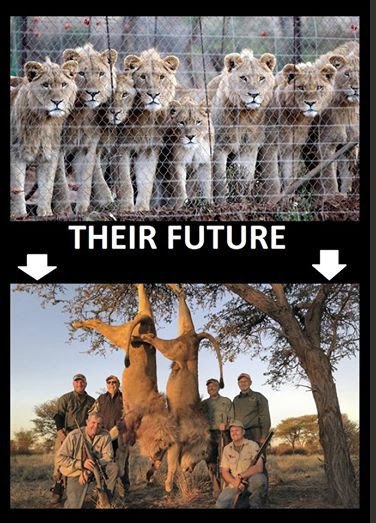
Why are we marching?
The SA canned lion industry is one whose whole business model is cruelty to helpless animals.
The cycle of cruelty starts at birth, and the callous practices brought in from factory farming. A miserable life in captivity ends with a violent death at the hands of sadistic hunting thugs.
This brutal enterprise is hidden from public view by hunting propaganda, which is designed to whitewash the sickening details. And, incredibly, the propaganda is promoted by the SA government.
Concerned citizens are routinely assured by both SA government officials and PHASA that: ‘canned hunting is not permitted in SA.’
Lies, lies and more lies.
Propaganda tries to cloud the issue by arbitrarily adopting a definition as narrow as a knife edge, and then denying that killing a tame lion in a larger camp is ‘canned hunting.’ But even some hunters are complaining about this public relations gimmick.
On any sensible definition,all hunts of captive – bred lions in SA are canned hunts.
About 1,000 lions are canned hunted annually in S.A. – about 3 per day.
Who is organising?
For an idea of what the marches will look like, and to see photos of some of the organisers, click on this link here.Organisers and marches.
To see a list of the 44 cities where marches will take place click here:List of cities
To read more about the march, and to see a list of all the cities, go to: GlobalMarch4Lions
Why lion farming and Canned Lion hunting should be banned:
1. Well let’s start with the cruelty. Bow hunting of tame lions is permitted in some provinces. Imagine the public outcry if farmers allowed hunters to come on to livestock farms and shoot sheep and cattle for sport?
2. It is causing a backlash against tourism to South Africa. Ethical tourists are already boycotting SA, causing losses to the legitimate tourism industry. These boycotts will surely increase over time.
3. It is a wasteful use of land and resources for no public benefit outside the narrow commercial interests of the hunting industry.
4. Private deals with rich foreigners give plenty of opportunities to unscrupulous soldiers of fortune for fraud and foreign currency swindles. Forensic audits need to be conducted across the industry, to protect the fiscus.
6. It is fraudulent at so many levels, right down to the sale of lion bones as tiger bone wine or cake, that have no proven medicinal value. Read Millions of dollars for old bones
On our website www.cannedlion.org you’ll find all you need to know about canned hunting, with a selection of relevant TV videos.
South African Government Email addresses
1a) Ms Olga Kumalo
Department of Environmental Affairs
Email:https:// okumalo@environment.gov.za
1b)Mr Mpho Tjiane
Department of Environmental Affairs
Email:mtjiane@environment.gov.za
The Chief Executive Officer
KwaZulu Natal Wildlife
Email: permits@kznncs.org.za; sharronh@kznncs.org.za
The Chief Executive Officer
Mpumalanga Tourism and Parks Agency
Email: jan@mtpa.co.za
The Head of Department
Free State Department of Tourism, Environmental and Economic Affairs
Email: nel@dteea.fs.gov.za; boing@dteea.fs.gov.za
The Head of Department
Gauteng Department of Agriculture, Conservation and Environment
Email:lydia.onsongo@gauteng.gov.za
The Head of Department
Northern Cape Department of Tourism, Environment and Conservation
Email:dpaulse@half.ncape.gov.za
The Head of Department
Limpopo Department of Economic Development, Environment and Tourism
Email: cites@ledet.gov.za
The Head of Department
Eastern Cape Department of Economic Affairs, Environment and Tourism
Email:noluthando.bam@deaet.ecape.gov.za
The Head of Department
North West Department of Agriculture, Conservation and Environment
Email: bdiole@nwpg.gov.za
Chair of the Scientific Authority
Mr John Donaldson
Email: j.donaldson@sanbi.org.za
Ms Motlalepule Rosho
Email: moikabin@yahoo.com
MEC North West Department of Economic Development, Environment and Tourism
Premier North West Thandi Modise -premiermodise@nwpg.gov.za
Marthinus van Schalkwyk (Minister of Tourism -ministry@tourism.gov.za
1 Ms Sonja Meintjes
Department of Environmental Affairs
Email:smeintjes@environment.gov.za
2 Mr Phillemon Mosana
Department of Environmental Affairs
Email:pmosana@environment.gov.za
CITES INTERNATIONAL.
CITES Secretary General – John Scanlon
Email: john.scanlon@cites.org
Chief, Legal Affairs & Trade Policy – Marceil Yeater –
Email: marceil.yeater@cites.org
Chief, Enforcement Support – Ben Janse van Rensburg
Email:ben.jvanrensburg@cites.org
Chief, Scientific Services – David Morgan –
Email: david.morgan@cites.org



